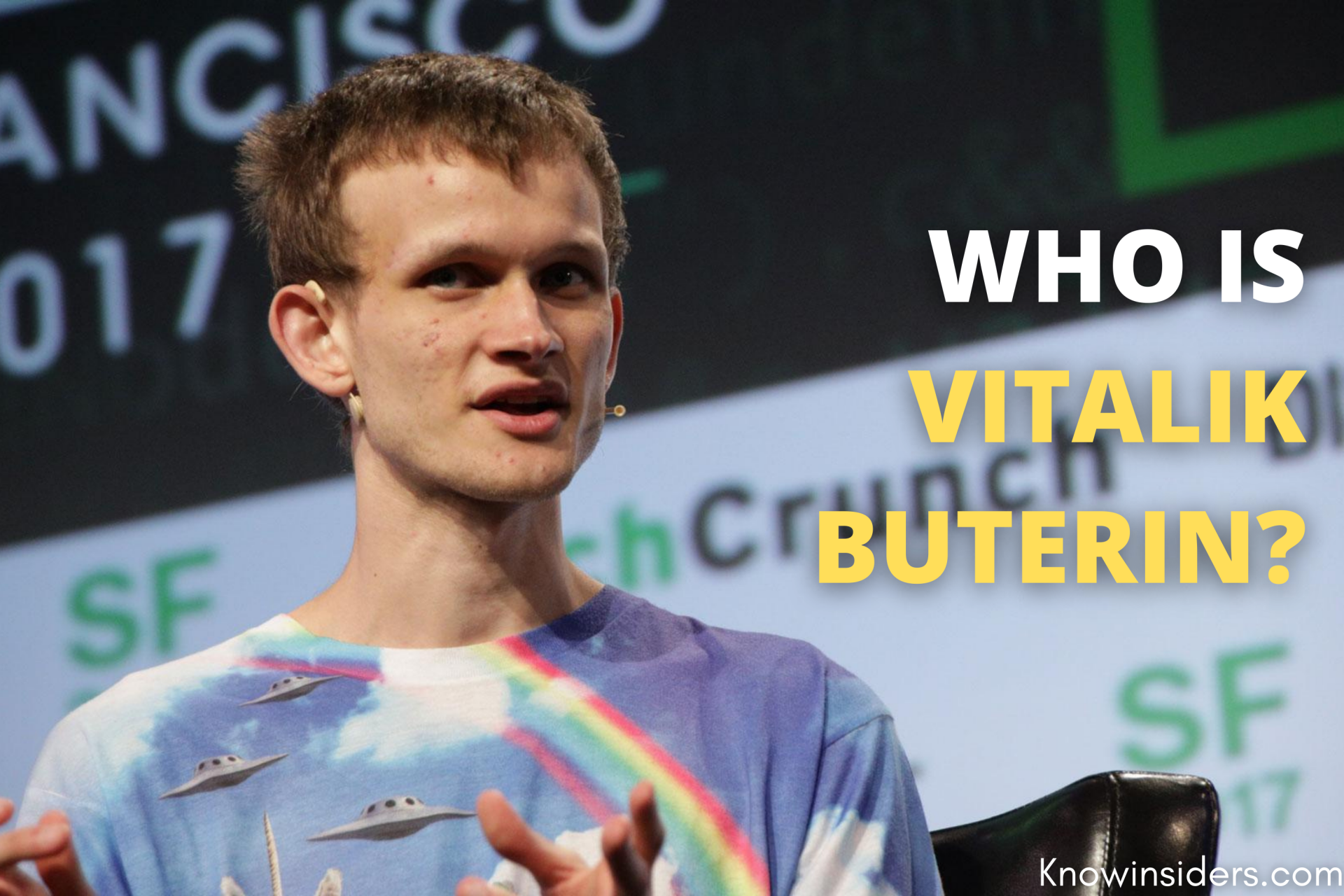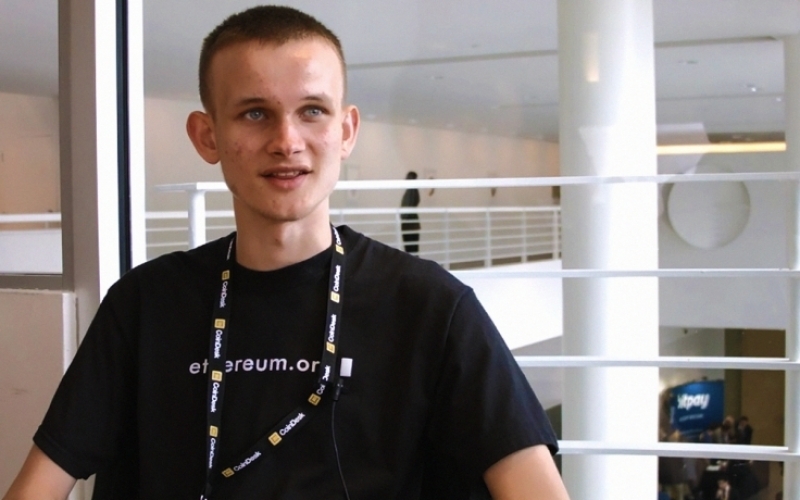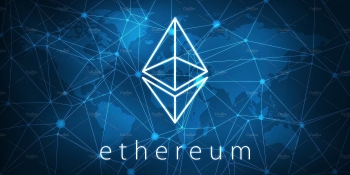Who is Vitalik Buterin - Ethereum's Boy-Genius: Biography, Personal Life & Cryptocurrency Career
 Prediction for Future of Facebook's Diem Cryptocurrency Prediction for Future of Facebook's Diem Cryptocurrency |
 |
Stay tuned for more information about Vitalik Buterin, the world's youngest crypto billionaire!
Who is Vitalik Buterin?
Vitalik Buterin is a Russian-Canadian writer and programmer. Vitalik was involved in the Bitcoin community since 2011, co-founding and writing articles for Bitcoin magazine. But he is primarily known as the boy-genius behind Ethereum, the world’s second-most valued and recognized cryptocurrency platform behind Bitcoin, Coin Telegraph cites.
At the time of writing, his visionary project boasts an enormous market cap of over $65 bln dollars, and it keeps growing. Meanwhile, Vitalik is only 23 years of age and has far-reaching plans for his creation.
Vitalik Buterin: Early Life
Vitaly Dmitriyevich "Vitalik" Buterin (Russian: Виталий Дмитриевич Бутерин) was born on Jan. 31, 1994, in a town of Kolomna, Moscow Oblast, Russia. He lived in Russia until the age of 6 when his parents decided to emigrate to Canada in search of better employment opportunities.
When he was in third grade of a Canadian primary school, he was placed in a program for the gifted. And while getting a place in this program meant more learning opportunities, he was basically abruptly sundered from his friends. While in the program, Vitalik quickly realized that his particular set of skills and talents made him somewhat of an oddity to his peers and even teachers. He was naturally predisposed to math and programming, possessed an early and strong interest in economics, and could add three-digit numbers in his head twice as fast as an average human being of his age.
 |
| Photo: Coin Telegraph |
Buterin was a stranger to social gatherings and extracurricular events. As he recalls, quite a lot of people talked about him like he was some kind of a math genius. At that time, Vitalik started wondering why can’t he be a normal person with a 75 percent average just like everyone else.
Some might say Vitalik had a hard time getting used to a new country and culture, with his uncanny mind and incredible talents setting him even further apart from his peers. Consequently, he dived deep into learning process as well as the Internet, where he forged most of his professional and personal relationships.
He then spent four years at the Aberald School, a private high school in Toronto. Vitalik describes his time there as some of the most interesting and productive years of his life. The school changed his perception of education, with both his attitude and results changing drastically almost immediately after he started studying there. It was in Aberald where he developed his trademark hunger for learning, essentially making learning his primary goal in life.
Vitalik has always had reasonably good grades, but for a while his priority was in earning extra levels playing World of Warcraft, instead of putting time and effort towards his homework. He was happily playing WoW since he was 13, until one day in 2010, Vitalik’s character had some properties changed due to a Blizzard update. He cried himself to sleep that night, subsequently realizing how horrible can decentralized services be and quitting World of Warcraft altogether.
Vitalik Buterin: Student life
Perhaps, it was his search for a new passion in life that led Vitalik to the world of cryptocurrencies. He first heard of Bitcoin from his father, who himself had a software startup back in 2013. He didn’t get into it straight away. Moreover, he initially thought that the cryptocurrency is inevitably going to fail, as it has no intrinsic value. However, later on, he heard about it a few times more and started to develop interest. As he said himself, if you hear about something twice, it might be a good idea to invest some time and find out more.
Already at that time, Vitalik viewed everything to do with government regulation or corporate control as just something plain evil. Naturally, the decentralized and uncontrollable nature of Bitcoin attracted his interest. Even though his policy on good and evil has been substantially updated since then, Vitalik is still motivated by his conviction that the powerful have way too much power in their hands.
Buterin ended up spending his time on various Bitcoin-related forums, researching the network. In the beginning, it was purely the cryptocurrency element of the network that attracted his attention, but as he was getting more and more involved in the community, he started gaining an understanding of the virtually unlimited potential of the technology behind Bitcoin.
He wanted to formally join this new and experimental economy by getting his hands on some tokens, but he had neither the computing power to mine them nor the cash to purchase Bitcoins. So, he looked for work paid for in Bitcoins on various forums and eventually began writing articles for a blog, which earned him around five Bitcoins per article.
 |
| Photo: CoinMarketCap |
Through his forum work and articles, Vitalik strived to get more understanding and experience of Bitcoin, as well as get some exposure in the community. At the same time, he was looking into all the different economical, technological, and political aspects of cryptocurrency. His articles attracted the attention of Mihai Alise, a Romania-based Bitcoin enthusiast, which leads to the two actively corresponding and eventually, in late 2011, co-founding Bitcoin Magazine. Buterin took the job of head writer for the magazine while doing another part-time job as a research assistant for the cryptographer Ian Goldberg. Moreover, Vitalik was taking five advanced courses at the University of Waterloo at the same time.
In May 2013, he took a trip to San Jose, California to attend a Bitcoin-related conference as a representative of Bitcoin Magazine. It was the first time Buterin witnessed that the community that was appearing around the cryptocurrency was alive and kicking, which convinced him that this is a project really worth getting into. Later that year, Vitalik dropped out from the University and spent some of the Bitcoins he amassed to travel around the world and meet the people who were trying to extend the capabilities of the Bitcoin network and make it into a bigger, more capable version of itself.
During his travels, he saw a lot of different Bitcoin-related projects, from the little shops in New Hampshire and restaurants in Berlin accepting Bitcoins, to Bitcoin ATMs and various little communities around the world. However, all of those were still mostly focused on how to improve and promote Bitcoin’s function as money.
In October 2013, he visited Israel, where he met people behind the projects called ‘CovertCoins’ and ‘MasterCoin.’ Those projects were exploring the use of Blockchain for various other applications, i.e., issuing tokens on top of Bitcoin, enabling users to use financial contracts and so on. Even though they were still using the underlying Bitcoin Blockchain, they were assigning new properties to Bitcoin transactions.
After looking at the protocols those projects were using, Vitalik realized that it’s possible to massively generalize what the protocols were doing by replacing all their functionality with a Turing-complete programming language. In computer science, a Turing-complete programming language is something that enables a computer to solve any particular problem, given the appropriate algorithm and necessary amounts of time and memory. Initially, he presented his idea to the already existing projects, but everyone told him that even though it’s an interesting idea, it wasn’t yet the right time to execute such grand things. So, he decided to do it himself.
Vitalik Buterin: Crypto Career
 |
| Photo: Blogtienao |
Buterin decided to begin a new project building on the concept of bitcoin. He proposed his idea to a group of coders he was working with at the time but did not gain the support he'd hoped for. He decided to undertake the project by himself, and in 2014, he released a white paper describing a decentralized software platform that could be used to create new applications based on a blockchain, called Ethereum. This platform would be "in many ways simpler" than bitcoin's architecture and would work off of a similar proof-of-work function, reported Market Wiki.
Buterin worked with a small group of programmers, including Joseph Lubin - Ethereum's current CEO - who also provided some of its initial funding. In 2014 they formed ConsenSys, a Brooklyn-based tech startup, to develop Ethereum.
Clashes with other cryptocurrency figures
Buterin has on numerous occasions criticized other figures in the cryptocurrency and blockchain fields. Buterin accused Craig Wright, chief scientist of nChain and the self-proclaimed true Satoshi Nakamoto, of misrepresenting the technological capabilities of many projects due to his ignorance, dishonesty, or both. Buterin even went so far as to publicly call him a "fraud" at the Deconomy conference in Seoul, South Korea in 2018. Buterin has repeated this claim numerous times over Twitter.
Buterin has also had conflicts with Justin Sun, founder of TRON. In April 2018, Sun posted a diagram arguing that TRON is a superior protocol to Ethereum. Buterin responded over Twitter by accusing Sun of misrepresenting the capabilities of his platform, as well as referencing allegations of plagiarism made against Sun and TRON earlier that year.[19][20][21] Buterin made similar jabs at Sun in September while defending a controversial remark he made about the blockchain industry's potential market growth, insinuating that Sun is apt to encourage unrealistic amounts of hype for cryptocurrency products.
Cryptocurrency luminary
Buterin has been a particularly outspoken figure in the cryptocurrency and blockchain space, often stating his opinions in a blunt and unapologetic manner - not just about individuals, such as Craig Wright, but specific practices and technology as well. In July 2018, said that he hopes "centralized exchanges go burn in hell as much as possible" in an interview with TechCrunch.
In September 2018, Buterin was interviewed by Bloomberg. During the interview, he stated that he believes the blockchain space "is getting to the point where there's a ceiling in sight," and that the technology has become too well-known for opportunities such as bitcoin's spike in December 2017: "If you talk to the average educated person at this point, they probably have heard of blockchain at least once. There isn't an opportunity for yet another 1,000 times growth in anything in the space anymore."
In November 2018, Buterin was awarded an honorary doctorate by the University of Basel in Switzerland. The university's Faculty of Business and Economics awarded the doctorate in recognition of his work in blockchain development. In the announcement, the university's business faculty said that Buterin is an "exceptionally creative and innovative thinker who has played a decisive role in shaping the digital revolution of our time." The faculty also noted Buterin's interest in researching game theory, economic incentives, and governance as additional reasons for awarding the honorary degree.
Vitalik Buterin Burns $6B in SHIB Tokens, Says He Doesn’t Want the ‘Power’Ethereum co-founder Vitalik Buterin burned 90% of his Shiba Inu holdings and will donate the remaining 10% according to a note he left on an ether transaction made on Sunday evening, reported Business Insider. Over 40% of the coin's total circulation has thereby been taken out of the market. Burning and donating the coins was the only option, Buterin said. He'd previously been given 50% of all Shiba Inu tokens by the coin's creators, said. It was the only way to avoid his transactions in Shiba Inu being interpreted as actions, or indicators on his part, he said. Buterin also urged coin creators not to send large amounts of tokens to individuals or charities without their consent. "I don't *want* to be a locus of power of that kind. Better to just print the coins into the hands of a worthy charity directly (though do talk to them first)," he wrote in his note. The burned coins have effectively been taken out of circulation - "burning" a crypto token means sending it to a public address that is inaccessible, where it will then lay unused. More than 40% of Shiba Inu tokens have now been burned, which amounts to around 410 trillion coins worth around $7 billion. Shiba Inu rose by over 40% to $0.00001953 after Buterin's statement. Based on CoinMarketCap data, the coin was last up 0.6% in the 24 hours to 08:17 E.T., trading at $0.0000161. SHIB is a small, dogecoin-inspired token that gained 1,000% last week. Its website describes it as an "experiment in decentralized spontaneous community building". Binance's Indian platform listed the SHIB coin late last week. Buterin said he had not yet decided to which charity he would donate the remaining 10% of his Shiba Inu tokens. He said he wanted to support an organization that aimed to prevent "large-scale loss of life" in the long term. Last week, Buterin donated Shiba Inu coins worth $1 billion to CryptoRelief, a crypto-based charity fund set up by Sandeep Nailwal, co-founder of the Ethereum platform Polygon, to support India in its fight against a deadly wave of COVID-19. Buterin said he would not donate the remaining Shiba Inu tokens to the same fund, as it was important to think about the future. "I've actually been impressed by how the dog token communities have treated the recent donations! Plenty of dog people have shown their generosity and their willingness to not just focus on their own profits but also be interested in making the world as a whole better." Buterin said. |
 What is Synthetix (SNX) - An Ethereum-based protocol What is Synthetix (SNX) - An Ethereum-based protocol There are several reasons for the rise of Synthetix (SNX), a token trading platform built on Ethereum. What it is and some remarkable characteristics of ... |
 What is Ethereum - World's Second Largest Cryto: How it works, Price Predictions, Guides to Invest What is Ethereum - World's Second Largest Cryto: How it works, Price Predictions, Guides to Invest Ethereum (ETH), the world's second-largest virtual currency by market value, is closing in on an all-time high. So what is Ethereum and how does it ... |


























